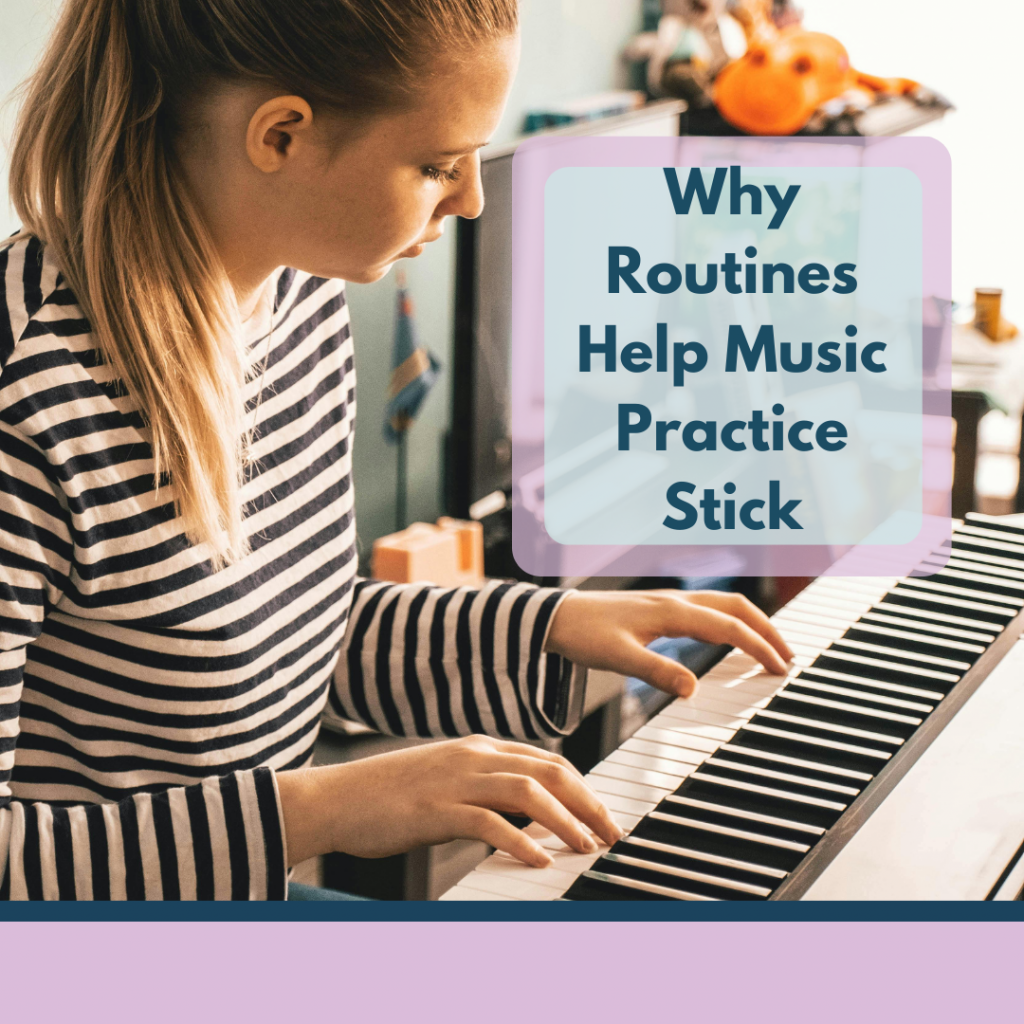
Why Routines Help Music Practice Stick
September is a time of fresh starts. New school year, new pencil cases, new timetables – and, for many families, a renewed determination to get organised. It’s also the perfect time to think about how music practice fits into your family’s routine.
At Sweet Symphony, we know that consistent practice is the key to steady musical progress. But we also know it can be tricky to make practice a regular part of busy lives filled with homework, clubs, and family time. That’s where routines come in. Establishing a clear, predictable practice routine is one of the most effective ways to help children – and adults – build strong, lasting musical habits.
Practice Becomes a Habit
When something is part of your daily routine, it requires less willpower. Think of brushing your teeth: you don’t have to decide whether to do it, you just do it automatically. The same principle applies to music practice.
By linking practice to a consistent time of day – for example, straight after school, before dinner, or as part of a bedtime wind-down – it becomes less of a decision and more of a habit. Over time, this repetition cements practice as a normal part of the day rather than a chore.
Short, Regular Sessions Work Best
Many parents imagine that practice must mean long, intensive sessions. In reality, short but frequent bursts are far more effective, especially for younger students. Ten focused minutes every day is more beneficial than an hour squeezed in once a week.
By weaving short sessions into the daily schedule, you avoid resistance and keep music fun. Students end their practice before they get tired or frustrated, which leaves them looking forward to the next time.
Routines Reduce Battles
Without a clear routine, practice often becomes a negotiation: “Not now,” “Maybe later,” or “I’ll do it after this show.” This back-and-forth can lead to stress for both parents and children.
A routine takes the argument away. If everyone knows that practice happens at a set time, it stops being up for debate. Just like homework or bedtime, practice becomes an expected part of the day, not an optional extra.
Consistency Builds Confidence
Progress in music is built on small steps repeated regularly. Scales, finger exercises, or tricky passages only become easier with daily attention. When students practise consistently, they see results more quickly – and nothing is more motivating than success.
A child who can confidently play a piece that once felt impossible feels proud, capable, and eager to keep going. That confidence then carries over into other areas of life, from schoolwork to social interactions.
Tips for Creating a Practice Routine
Here are some ideas to help you set up a routine that works for your family:
- Pick the same time each day. Right after school or after dinner often works well.
- Keep sessions short. Aim for 10–15 minutes for beginners. Older students can gradually extend this.
- Make it visible. Use a wall chart, stickers, or our Sweet Symphony Roadmap wristbands as reminders of progress.
- Create a practice space. A quiet, comfortable corner with everything to hand (instrument, stand, books) removes excuses.
- Celebrate success. Acknowledge effort as well as results – consistency itself is worth cheering!
Building Routines That Last
September is an ideal moment to establish these habits. With school timetables freshly set, it’s easier to slot practice into the day before other commitments take over. Once the routine is in place, it provides stability and structure that lasts all year.
At Sweet Symphony, we love seeing how regular practice transforms our students’ confidence and skills. Families who stick to simple routines often tell us how much smoother lessons feel, how proud their children are of their progress, and how practice stops being a battle.
Music is a journey, not a sprint. With routines in place, every student can move steadily forward, one small step at a time.
Ready to start your own practice routine? Book a trial lesson with us this September and see how our supportive teachers can help your family build music into everyday life.
